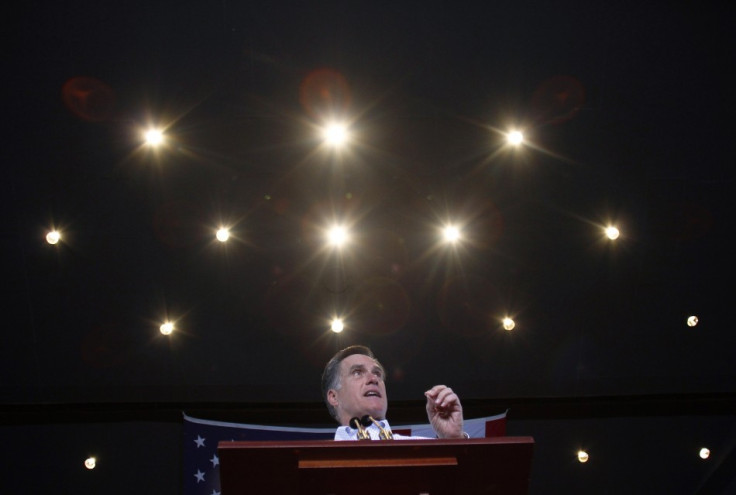US 2012: Michigan Race Tightens as Talk Turns to Tampa

New polls show Mitt Romney has closed the gap on Rick Santorum ahead of the crucial Michigan primary but he still faces a tough battle to convince Republican activists that he is the best candidate to beat President Barack Obama.
Despite gaining ground in Michigan over the weekend, a series of damaging gaffes and polls showing Romney trailing Santorum in key upcoming contests have led some party activists to call for an alternative candidate to enter the race.
Public Policy Polling's latest numbers in Michigan show that Romney has reduced a 15-point deficit into just four - essentially a tie as the poll had a four-percentage point margin of error.
The results have done little to dent Santorum's popularity among Michigan Republicans, however. Instead, Romney has picked up a greater percentage of undecideds - largely down to Newt Gingrich's continued campaign rather than a dip in Santorum's momentum. Should Gingrich drop out of the race Santorum's numbers would grow again.
Romney's recent surge has been attributed to a blanket ad buy in the state, which he used to illuminate his anti-motor industry bailout stance. His support has also solidified among women and moderates, as well as Catholics.
But as Five Eighty Eight, a New York Times blog, points out, this latest poll may overstate Romney's recovery, owing to the greater percentage of evangelicals polled in the earlier effort which gave Santorum the headline-friendly 15-point lead. That bloc remains likely to constitute a large slice of Santorum's support at the Michigan primary on 28 February and should, if they come out in significant numbers, help him carry the state.
Recent projections back this view. In past primaries and caucuses, those candidates with a five-point polling lead in the final week before voting ended up winning roughly 72 percent of the time.
Super Tuesday and Beyond
With Arizona - also going to the polls on 28 February - predicted to fall comfortably to Romney, and Santorum looking strong in upcoming contests in Ohio and Oklahoma, it seems clear that the nomination fight is set for the long haul, a scenario that favours neither the Republican Party nor Romney.
Such uncertainty over the party's nominee has led to detailed talk among senior activists of either a "brokered" or a "contested" convention - whereby no single candidate has enough delegate votes, or unanimous support, to claim the contest at the Republican convention in Tampa in August.
Indiana governor Mitch Daniels and New Jersey governor Chris Christie have both been touted as potential "saviours" but most party veterans grudgingly acknowledge that Romney remains the most likely to secure the nomination, despite concerns over both his general election prospects in the autumn and unease over the drawn-out primary calendar and the Tampa convention.
"I don't see how [an alternative] could happen. It's just too late," Republican representative for Wisconsin Paul Ryan told NBC's Meet the Press.
His view was echoed by former Republican National Committee chairman Ed Gillespie. "On the Republican side there may be more demand than there is supply in terms of candidates, but that's the nature of the process," he said.
The nature of Romney's gains in Michigan, as in Florida last month, demonstrates that when he invests heavily in negative advertising he can eat up a lot of ground. His problem remains that he has been forced to come from behind in almost every significant race so far. And with speculation that he is running low on funds, his ability to spend his way to the nomination looks like an increasingly threadbare strategy.
© Copyright IBTimes 2025. All rights reserved.





















